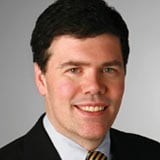When we assign Morningstar Analyst Ratings, we are thinking about a fund's risk-adjusted prospects; in short, "Are you getting paid for the risk you're taking?" questions Russel Kinnel in Morningstar FundInvestor.
Our Risk Relative to Category rating tells you if a fund's volatility is Low, Below Average, Average, Above Average, or High for its category.
We have a number behind those words, so I decided to pull some of the lowest of the low and highlight some Morningstar Medalists that have been at the very low end of volatility for their category.
Keep in mind that it's a relative to category measure—even a very low-risk emerging-markets fund is much more volatile than your typical intermediate-term bond fund.
American Century Equity Income (TWEAX:US) has produced nice returns, but it's the risk-adjusted returns that really look attractive. The fund tones down equity risk by holding a sleeve of convertible bonds in the 15% to 25% range. Phil Davidson is a cautious investor who tries to tamp down volatility.
Thus, this fund shines in down years by losing much less than the competition. In years like 2013, however, you expect it to lag on the upside.
Akre Focus (AKREX:US) typically has around 15% or so in cash and sometimes more. That helps to tone down volatility, but so does Akre's emphasis on quality, which gives the fund a mix of value and growth characteristics.
Manager Chuck Akre wants strong business models that can produce outstanding returns on capital, and he wants shareholder-oriented managers to run them.
This leads him to the steadier side of growth, investing with names like MasterCard and Moody's. It's a good thing, too, because Akre bets big on his favorites, with nearly 10% in MasterCard.
Aston Montag & Caldwell Growth (MCGFX:US) is another lower-risk growth fund. Manager Ron Canakaris and team look for stable growers trading at a modest price.
This leads them to large-cap, well-known names like Abbott Laboratories, Coca-Cola, and Google. Canakaris is 69 years old, but we still feel good about the fund's prospects.
I visited the firm in Atlanta and was pleased to see that it is in good shape, with a number of managers and analysts behind Canakaris who can take up the slack if he should retire. I'm also pleased that the firm is now employee-owned and Canakaris will sell back his shares when he retires.
Like American Century Equity Income, First Eagle US Value (FEVAX:US) has been a champ in down markets and a laggard in up markets.
However, its long-term returns are quite good, so it would seem that it's done a fine job rewarding shareholders. The fund plays defense in quite a few ways. It holds a big cash stake, but that's only one part of the story.
True to founder Jean-Marie Eveillard's philosophy, Matt McLennan and Abhay Deshpande are focused on capital preservation.
They look for companies with healthy balance sheets and profit margins, but whose shares are trading at a big discount to their estimates of intrinsic value. They like some gold or potash producers for their defensive characteristics.
The fund lost 1,391 fewer basis points than the S&P 500 Index (SPX) did in 2008, and 358 fewer in 2011, but it is lagging by 1,006 this year.
Generally, the best time to buy a fund like this is after a couple of years near the back of the pack, as that could mean risk is rising. No doubt, this fund's defenses will be valued yet again.
Subscribe to Morningstar FundInvestor here…
More from MoneyShow.com:
Fidelity Funds: Active Versus Passive










